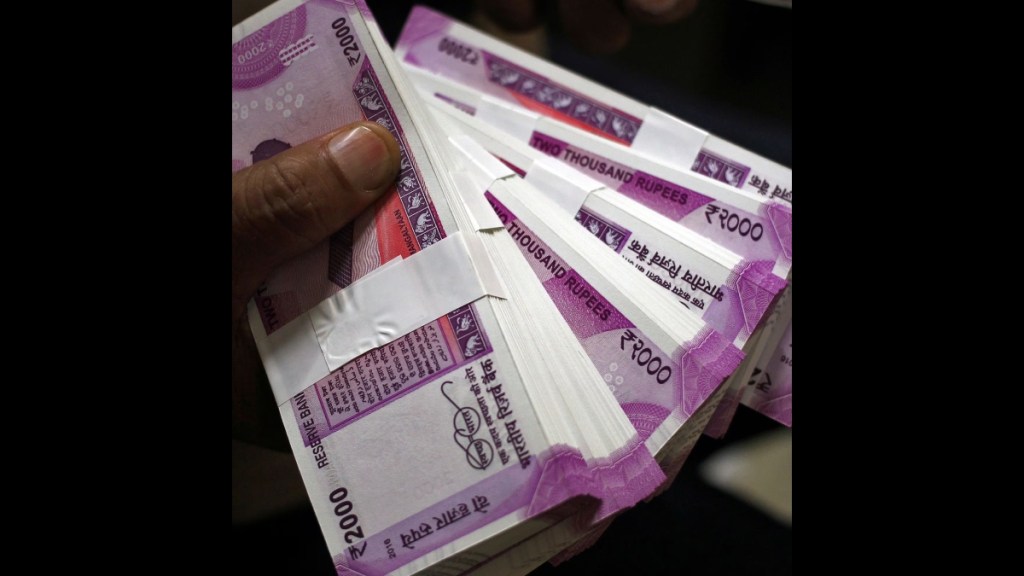Hit by the Reserve Bank of India’s (RBI) decision to raise risk weights on unsecured loans, digital lenders are looking to reduce their exposure to small-ticket personal loans. Anticipating an imminent increase in funding costs, they have scaled down disbursal targets in the sub-Rs 50,000 loans category and are planning to diversify their product portfolio and customer base.
As per industry estimates, 70-75% of the total advances of digital lenders consist of small ticket loans below Rs 50,000.
“Some digital lenders may reduce their small-ticket loan portfolio. They might enter into portfolios which are more secured,” Jatinder Handoo, chief executive officer, Digital Lenders Association of India, told FE. “The rise in the cost of funds will make digital lenders choosy, which will reduce the credit flow to first-time borrowers,” he added.
Digital lenders are expected to tighten their screening parameters for first-time borrowers, he added. Young individuals with no prior credit score history may find it difficult to get loans from these lenders.
Macquarie estimates the industry’s overall loan growth will moderate to 12%-14%, from above 15% currently.
Digital lending platform KreditBee expects to increase its disbursement by 40-50% by the end of this financial year, compared to its earlier projection of 60-70% growth in disbursement, which the company had shared in an interview with a media outlet last month. “Given the overall macroeconomic scenario, we are looking to grow disbursements by at least 40-50% in this financial year,” the company said.
In FY23, the company’s disbursements stood at Rs 14,000 crore, which puts the current financial year projection between Rs 19,600-21,000 crore. It had earlier projected disbursement between Rs 22,400- 23,800 crore.
Many banks and non-banking finance companies have also asked their fintech partners to curtail issuing tiny personal loans. “Our banking partner has already signaled us to go slow on small-ticket loans. We have revised our growth projections and expect disbursals to grow at around 30% in the second half of this fiscal against previous estimates of 60%,” said the CEO of a Mumbai-based digital lending platform.
Concerned by the unbridled growth in personal loans, the RBI increased the risk weights on unsecured loans last month. The move has resulted in higher capital requirements for banks and NBFCs, raising the cost of funds for borrowers.
Digital lenders, which source funds from banks and NBFCs, are expecting slower credit growth due to rise in the cost of funds. One97 Communications, the parent firm of Paytm, on Wednesday, announced that it will focus on high-ticket lending and go slow on loans that are less than Rs 50,000.
On Tuesday, buy-now-pay-later startup ZestMoney said it will be shutting down amid regulatory uncertainty and a failed attempt to revive its business under a new management. The management informed employees in a townhall that it will be winding down operations and will let go of the remaining 150 employees. It will retain a skeletal legal and finance team to see through the shut down.
“While we have a negligible exposure to small-ticket personal loans, we believe these loans address a genuine customer need. We expect this segment to shrink while risk is being corrected, and then to rebound,” said Prithvi Chandrasekhar, CEO Consumer Finance & Risk Analytics at InCred Finance. “We are very confident that our personal loans portfolio will continue to grow strongly and safely,” he added.
Some digital lenders which were so far solely relying on small-ticket loans, are now looking to diversify their customer base. However, they are set to face stiff competition from banks and NBFCs in big-ticket loans.
“We are evaluating our strategy to increase our focus on larger ticket-size loans,” Gaurav Jalan, Founder and CEO of mPokket, a digital lending platform said. “Digital lenders will now look to diversify their product portfolio, but it is a time taking process and will happen gradually,” he added.

